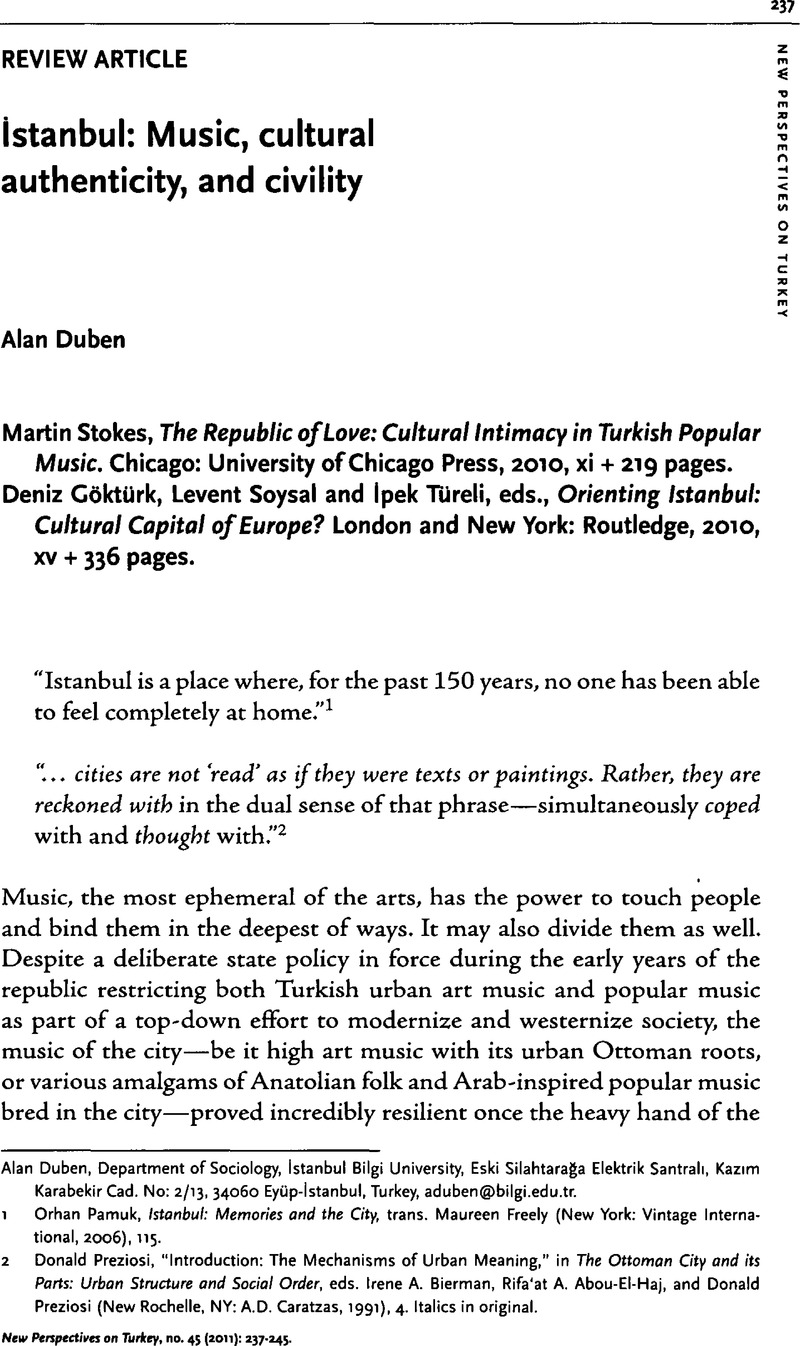Crossref Citations
This article has been cited by the following publications. This list is generated based on data provided by Crossref.
Tuominen, Pekka
2013.
The clash of values across symbolic boundaries: claims of urban space in contemporary Istanbul.
Contemporary Islam,
Vol. 7,
Issue. 1,
p.
33.



